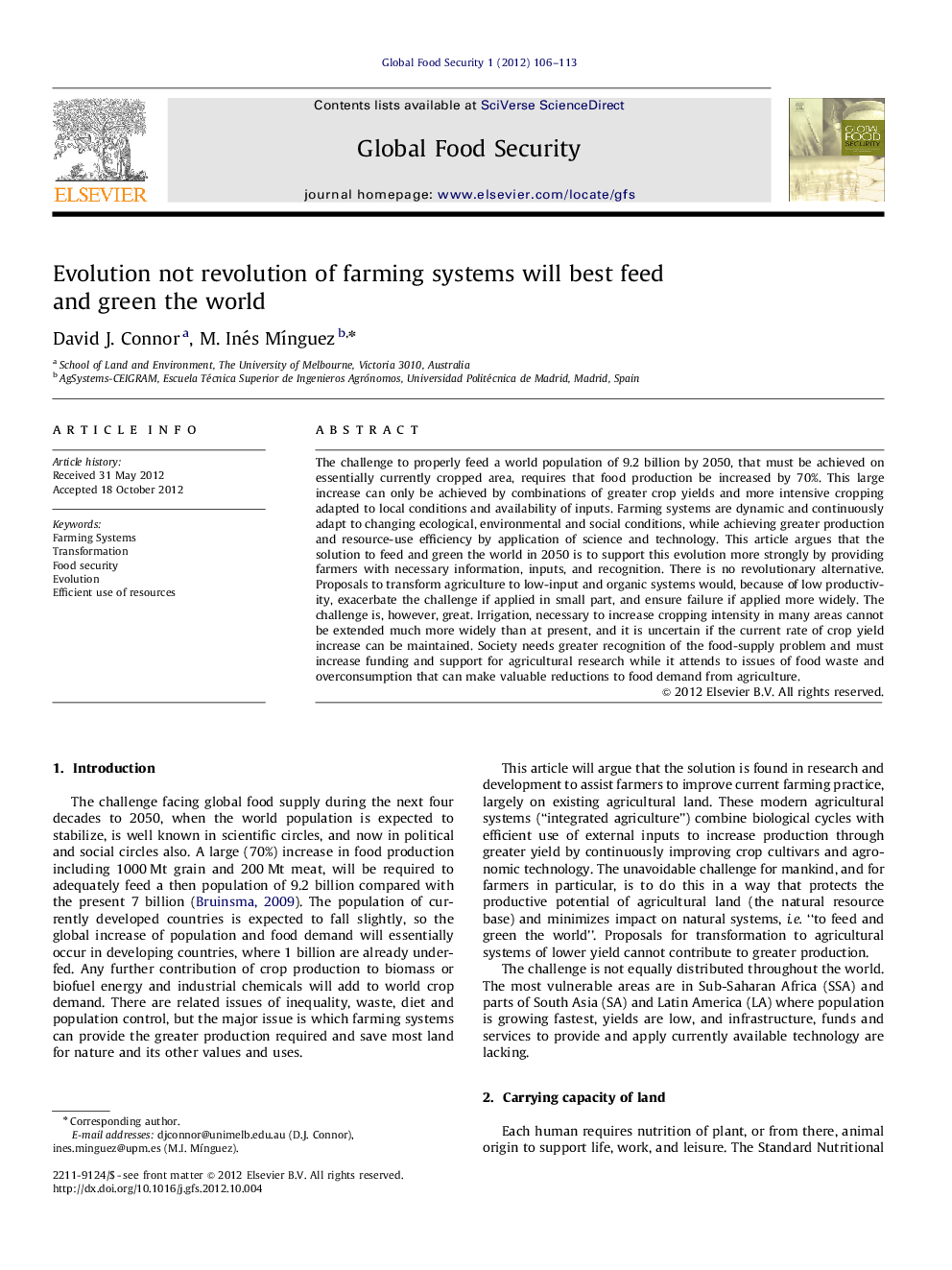| کد مقاله | کد نشریه | سال انتشار | مقاله انگلیسی | نسخه تمام متن |
|---|---|---|---|---|
| 1047591 | 945295 | 2012 | 8 صفحه PDF | دانلود رایگان |
The challenge to properly feed a world population of 9.2 billion by 2050, that must be achieved on essentially currently cropped area, requires that food production be increased by 70%. This large increase can only be achieved by combinations of greater crop yields and more intensive cropping adapted to local conditions and availability of inputs. Farming systems are dynamic and continuously adapt to changing ecological, environmental and social conditions, while achieving greater production and resource-use efficiency by application of science and technology. This article argues that the solution to feed and green the world in 2050 is to support this evolution more strongly by providing farmers with necessary information, inputs, and recognition. There is no revolutionary alternative. Proposals to transform agriculture to low-input and organic systems would, because of low productivity, exacerbate the challenge if applied in small part, and ensure failure if applied more widely. The challenge is, however, great. Irrigation, necessary to increase cropping intensity in many areas cannot be extended much more widely than at present, and it is uncertain if the current rate of crop yield increase can be maintained. Society needs greater recognition of the food-supply problem and must increase funding and support for agricultural research while it attends to issues of food waste and overconsumption that can make valuable reductions to food demand from agriculture.
► World food supply must increase by 70% to feed a population of 9.2 billion by 2050.
► Farmers require greater support to achieve greater yields and more crops on current cropped area.
► Major genetic advance may be required to maintain current rate of yield gain.
► Extra land needed for low-yield systems conflicts with nature conservation.
► Minimization of waste has more potential than dietary change to reduce food demand.
Journal: Global Food Security - Volume 1, Issue 2, December 2012, Pages 106–113
